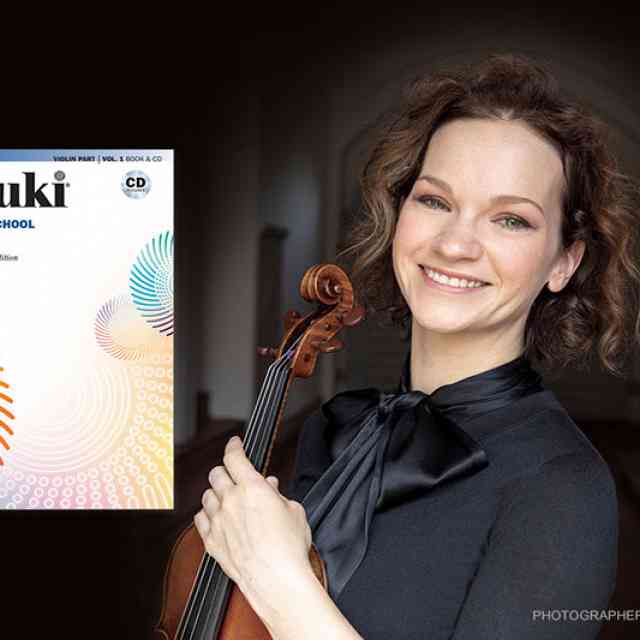Back in my early 20s, when I started teaching, I felt proud of the fact that I was making a living by doing something I truly liked. A few years later, those feelings have not wavered, but what did change was the growing interest in getting out there and setting up my own studio. But there was one big issue: I had no clue as to what I could do to make things happen, particularly on the business side of things. And while I was thrilled at the opportunity to have sole control in the decision making in my studio, I struggled with getting things started.
It wasn’t until 2015 when I moved to Portland, Oregon, and “Laurita” Jauregui gave me the chance to run her studio while she took a sabbatical year in Mexico, that I got the grasp of how much commitment, work, and responsibility handling the business side of things entails—especially when the studio you are running is not your own! Yes, at times it was a lot to handle, but the experience I gained encouraged me to set up my own studio where I currently live in Minnesota.
These 10 steps I’ve taken have definitely helped through the ups and downs of setting up a successful teaching studio. I hope that by offering them I share my knowledge, encourage young or new teachers to do further research, and/or possibly give you some tools that can be used for taking the leap into managing the business side of teaching.
1. Scout around for rates on local extracurricular activities i.e. sports, choir groups, ballet, music lessons, etc., and come up with a rate that will compete with others but also make you happy. While it’s important to know your worth and charge accordingly, being flexible and realistic about what people are willing to pay for lessons could result in better chances of recruiting.
2. Set a strong studio policy and follow through on every rule. Whether it is late tuition fees, attendance and make-up lessons, recital participation, and electronics in the studio, stay firm on expectations and what you believe is the right fit for you and your studio. The families you work with will respect you for this, and others will seek you out based on your values.
3. Create an online presence with a webpage, or build your own website. While having a website won’t guarantee fast recruitment, having an online presence can help you spread the word about your studio faster. Make sure you include recordings of yourself and/or of students performing and a few testimonials of people you’ve worked with. These things go a long way!
4. Plan ahead for all events you want to happen in your studio. If possible, make a calendar for the whole year in advance. Write down group class dates, teacher meetings, parent forums and conferences, recitals dates, special concerts, gigs, vacations, holidays, personal trips, appointments, and sick days! Have all of your events confirmed for locations, dates, and times as soon as possible and ready to send to the families in your studio so they can plan accordingly.
5. Create a database with all of the studio information to help you keep things on track, particularly on the business side of things. Keep track of tuition payments, studio expenses, space rent, accompanists’ fees, other memberships, etc. There are a few ways you can do this. You could try free platforms like Google Sheets, Excel, or Numbers. Or, for a subscription fee, you can use platforms like My Music Staff, Music Teacher’s Helper, or Capterra to help you manage the administrative side of your business. The major takeaway is to always write everything down. This may seem overwhelming in the beginning, but it gets easier with time.
6. Set aside a specific time for office hours so parents can meet with you (or call) to talk about sensitive issues. Also, hosting parent forums and parent–teacher conferences will provide a space for the adults to talk about important matters and feel supported. It’s up to you how you go about setting them up and how you go about charging for these, but I truly believe that the key to a studio’s longevity and success lies in parent support and education.
7. Communication, communication, communication! Keep families in the loop about everything that’s happening in your studio, and more. Make posters for every event you would like the families to be aware of: symphony concerts, special recitals, fundraisers, local play-ins, summer institutes, local festivals, and music camps. Send email, texts, and links to online calendars so they don’t miss a thing.
8. Keep up with current children’s educational, developmental, and/or psychological findings. Read books, journals, articles and listen to teaching podcasts. This will help you understand and navigate the struggles of certain situation in your studio. Also, seek training as often as possible. Find a mentor or get together with friends and colleagues to share ideas and teaching strategies over coffee, lunch, or happy hour! Attend teaching conferences, for both learning and for networking, and join your local, state, and national associations. The more you care about growing as a teacher, the more valuable you’ll become to the families in your studio.
9. Stock up on resources. Books, printouts, articles to share, teaching and office supplies, instrument parts and gadgets, music, and teaching accessories. If you can’t amass a collection of things right away, forge a good relationship with a local luthier shop and/or music store.
10. Find and build your own brand. This is something that develops over time, but it will help you stand out and make your studio much more attractive to prospective new families. Create, nurture, and expand your studio and serve your community. Reach out to other teachers in your town, plan a concert or a series of concerts that are accessible to the under-resourced. Play at a nursing home, volunteer your time for a free intro to music class at the local pre-school, and more! The possibilities are infinite!
Angel Falú-García works as a Suzuki viola and violin teacher at his own studio located in downtown Rochester, Minnesota. He is also the current president of the board and faculty member of the Southeastern Minnesota Suzuki Association (SEMSA), an organization made of parents and local teachers whose mission is to help provide good quality music education in the SE Minnesota community. Falú holds a bachelor’s in viola performance from the Puerto Rico Conservatory of Music and a master of music from the University of Akron.
Stay firm on expectations . . . the families you work with will respect you for this, and others will seek you out based on your values.
The key to a studio’s longevity and success lies in parent support and education.









